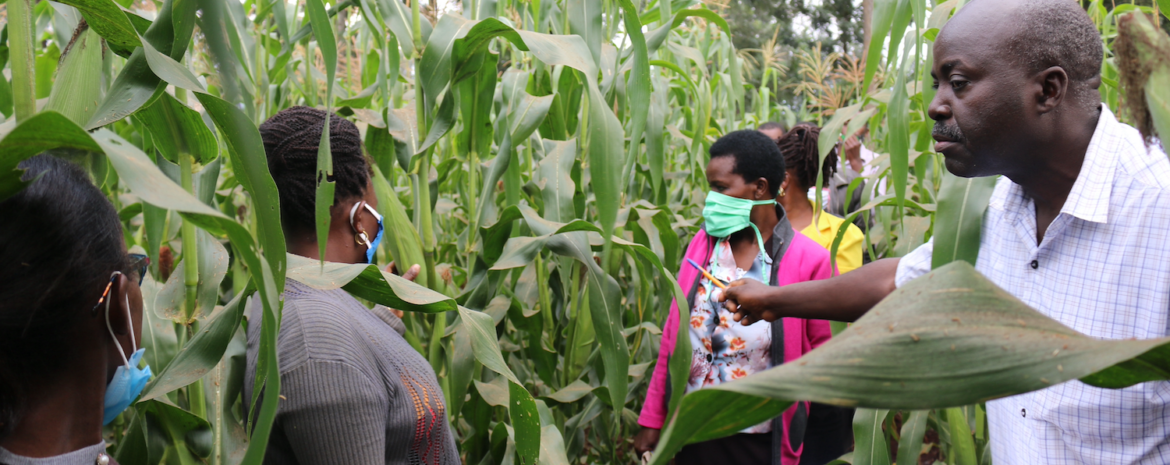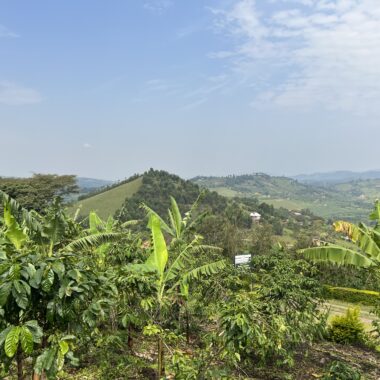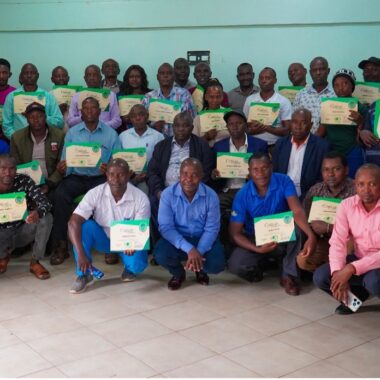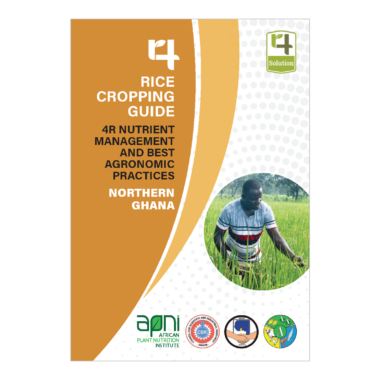Project Launch: COVID-19 Food Security Mitigation for Kenyan Farms
Benguérir, Morocco – 28 May, 2021 – Covid-19 continues to drive the loss of lives, investment, and jobs and is responsible for degrading the quality of life amongst the most susceptible in Africa. In Kenya, the effects of the pandemic have been exacerbated by the compounding impacts of climate change and recent locust swarms.
Tens of millions of people are at risk of falling into extreme poverty and undernourishment. The disruptions that are driving food related vulnerabilities include: limited access to agricultural inputs especially hybrid seeds and fertilizers; limited advisory services due to fear of COVID-19 and government lock down; and limited knowledge on how to close yield gaps through improved crop management.
There is a need for rapid interventions to mitigate the ever-growing effects of the pandemic on food and nutrition security especially amongst the most vulnerable households. Reversing the trend requires a concerted effort between multiple institutions including: development partners like AGRA and USAID, technical institutions like APNI, County governments, and implementing partner KALRO.
APNI recently launched its new COVID-19 Mitigation Project for Kenya with financial support from USAID through AGRA, a project implementing partner. The project also emphasizes and encourages partnership with county governments and the entire Partnership for Inclusive Agricultural Transformation in Africa (PIATA).
“The overall objective of the project is to enhance resilience of smallholder farmers to COVID-19 disruptions by facilitating access to farm inputs, digital information and advocate for conducive policies through the county governments,” explains Dr. James Mutegi, APNI Senior Program Manager.
The project is presently aimed at benefiting 14,000 COVID-19 vulnerable farmers in the four target counties of Makueni, Kakamega, Bungoma, and Siaya.
Initially the project will scale-out the distribution of high-quality inputs including improved seeds for high yielding, locally adapted maize, beans, green grams and vegetables. Practical training for extension staff, village-based advisory service providers (VBAs), and country staff on appropriate agronomic practices will be led by APNI through the establishment of primary learning centers or “mother” field plot demonstrations. In turn, farmers will be trained by VBAs backstopped by extension workers and APNI through local “baby” demonstrations. Training will include practical discussions on the use of improved seeds and fertilizers, the importance of balanced fertilization, crop- and soil-specific fertilizer recommendations, and 4R (Right source, rate, time, and place) Nutrient Stewardship.
The project intends to strengthen the digital agricultural extension system which are currently limited in their scale, efficiency, and engagement with remote, small scale farmers. The advantage of communication technologies such as radio and new digital solutions will be harnessed to enhance farm access to extension services.
Related outputs include the profiling and mapping of the most vulnerable farmers for ease of applying future interventions.
“Future initiatives aimed at dealing with risks, disruptions, vulnerability and community adaptation should be guided by data to facilitate evidence-based decision making,” explains Dr. Mutegi. “Our project will help to shed light on the drivers of community resilience and adaptation capacity to risks and disruptions like COVID, especially among the most vulnerable.”
Follow the project at: https://www.apni.net/project/ky-sh-01/
###
About the Project Partners
APNI (https://apni.net) is a not-for-profit research and development organization headquartered in Benguérir, Morocco. Its continental vision is prosperous African farmers sustainably managing crop nutrition to provide consumers with a secure supply of nutritious foods at a reasonable price.
USAID (https://www.usaid.gov) leads international development and humanitarian efforts to save lives, reduce poverty, strengthen democratic governance and help people progress beyond assistance.
AGRA (https://agra.org) exists to fulfill the vision that Africa can feed itself and the world, transforming agriculture from a solitary struggle to survive to a business that thrives.
KALRO (https://www.kalro.org) conducts agricultural research through application of science, technology and innovation to catalyze sustainable growth and development in agriculture and livestock Product Value Chains.
APNI Contributors: Gavin Sulewski, Editor; Dr. James Mutegi, Senior Program Manager.





